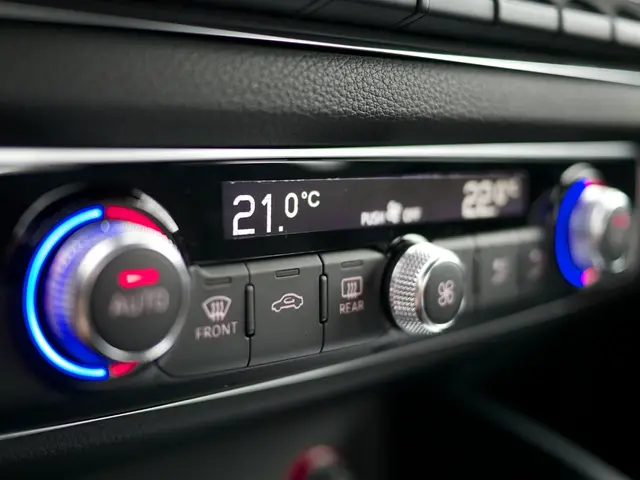Extended financial aid for plug-in vans and increased electric vehicle (EV) assistance through a £120 million investment by the UK government
The UK government is taking significant strides to facilitate the transition to zero-emission vehicles, as part of a £2.3 billion plan. One of the key initiatives announced is a £120 million funding package to accelerate the shift towards cleaner transport.
Lilian Greenwood, the future roads minister, confirmed the funding on 25 February. This investment, alongside £6 billion in private sector funding, aims to ensure a robust and accessible electric vehicle (EV) charging network nationwide.
The government has been consulting car manufacturers on reinstating the 2030 ban on new petrol and diesel cars, but the names of the manufacturers consulted have not been disclosed yet.
In a positive sign for consumers, one in three used EVs are priced under £20,000, and 21 new electric models are available for under £30,000. The average range of a new EV is now at 236 miles, and its lifetime emissions are significantly lower than petrol vehicles.
To further reduce costs and bureaucratic barriers, the government is removing additional training requirements that previously applied only to zero-emission vans. This move is expected to simplify the hiring of drivers for electric van fleets in the UK.
Businesses and van drivers in the UK can receive up to £2,500 for small electric vans (up to 2.5 tonnes) and up to £5,000 for larger electric vans (up to 4.25 tonnes) through the Plug-in Van Grant, which has supported the sale of over 80,000 electric and zero-emission vans in the UK since its introduction.
The Plug-in Wheelchair Accessible Vehicle Grant cap is being raised from £35,000 to £50,000, offering consumers a broader choice of models and improved transport options for disabled passengers.
Taxi drivers in the UK can continue to benefit from a £4,000 grant to support the purchase of zero-emission black cabs and other models for another year. The UK government is also maintaining a £500 grant for the purchase of electric motorcycles for another year.
The UK now has over 74,000 public chargepoints available, including nearly 20,000 added in the past year. This expansion is crucial for the widespread adoption of EVs.
In 2024, more than 382,000 electric cars were sold, representing a 20% increase over the previous year. The government's commitment to supporting the growth of the EV market is evident in these figures.
The UK's commitment to sustainable urban mobility will be recognised at the fourth annual CiTTi Awards, to be held on 25 November 2025 at De Vere Grand Connaught Rooms in London. These awards aim to recognise achievements and innovations in this field.
In conclusion, the UK government is making substantial efforts to promote the adoption of zero-emission vehicles, aiming to create a cleaner, more sustainable transport future for the country.
Read also:
- Recorded surge in electric vehicle registrations during the initial half of the year
- Polestar CEO, Lohscheller, voices concern on the ongoing debates about competitors' products: "Maintain focus, avoid distractions"
- London Mayor Sadiq Khan under fire for raising Congestion Charge, with drivers facing an additional £80 million in yearly costs
- UNEX EV, U Power's collaborator, inks LOI with Didi Mobility for the implementation of UOTTA battery-swapping vehicles in Mexico.








